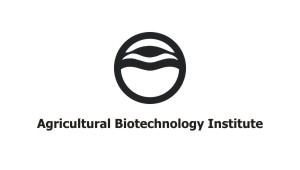ABC - Department for Plant Biotechnology - Epigenetics Group
Research Interest
I am a molecular biologist and my group is studying how epigenetic changes and plant small RNAs are involved in fruit ripening and plant-microbe interactions. We use genome editing, next generation sequencing and analysis of sRNA biogenesis mutants, to globally identify expression changes of mRNAs and sRNAs in response to biotic or abiotic changes in different plant species.
Current Research Projects
Identification of plant genes responsible for viral symptom development – NKFIH Grant
The yield losses caused by viruses are remarkable. Although we have a lot of information about viruses and the symptom types they cause, unfortunately the molecular background of virus-induced disease symptoms are poorly understood. The roles of host genes during symptom development are not very well known either. During our research we intend to identify and characterize these host encoded symptom determinant genes by the help of Arabidopsis thaliana, the model organism of plant biology. If we manage to understand the processes during symptom development in a model plant, we would also be able to attenuate the symptoms in economically important plants to reduce crop loss. With the information about the genes responsible for symptomless phenotype it will be possible to design molecular markers for agriculture to accelerate the improvement of economically important crops.
Engineering tomato fruit ripening variation by genome editing – NKFIH Grant
Providing enough food to the entire human population is an emerging problem of the 21st century. Currently, the human population is rapidly growing and it is projected to reach 9 billion by 2050. According to recent estimation, food supplies would need to increase by 60% (estimated at 2005 food production levels) in order to meet the food demand in 2050. As the available land for food production has reached its maximum the only way to assure food security if we can increase crop yields, improve distribution and in the same time reduce yield losses. FAO predicts that about 1.3 billion tons of food are globally wasted or lost per year. Thus, reduction of post-harvest food losses is a critical component of ensuring future global food security. Furthermore, food losses also have negative effects to society through costs of waste management, greenhouse gas production, and loss of resources used in their production. Tomato is one of the most popular vegetables on the globe. Beside its economic and nutritional importance, tomato is the principal model to study fleshy fruit development and ripening. The long shelf life of tomato is an important trait for the quality of fleshy fruit, and it is one of the main objectives in breeding programs as it influences fruit marketability and reduces post-harvest losses. This project will use state-of-the-art genome editing method to provide new genetic material to breeders to help to improve the shelf life of tomato. The increased shelf life has an important economic and environmental protection consequence, since it is a major contributor to the reduction of post-harvest losses.
Staff
Publications
Publications (2015 – present)
-
Sós-Hegedűs, A., Domonkos, Á., Tóth, T., Gyula, P., Kaló P., Szittya, G. (2019). Suppression of NB-LRR Genes by miRNAs Promotes Nitrogen-fixing Nodule Development in Medicago truncatula. Plant Cell Environ., First published: 13 December 2019, https://doi.org/10.1111/pce.13698.
-
Tóth, T., Gyula, P., Salamon, P., Kis, S., Sós-Hegedűs, A., Szittya, G. (2019). Molecular characterization and in vitro synthesis of infectious RNA of a Turnip vein-clearing virus isolated from Alliaria petiolata in Hungary. PLoS ONE, 2019 Oct 24;14(10):e0224398. doi: 10.1371/journal.pone.0224398.
-
Medzihradszky, A., Gyula, P., Sós-Hegedűs, A., Szittya, G., Burgyán, J. (2019). Transcriptome reprogramming in the shoot apical meristem of CymRSV-infected Nicotiana benthamiana plants associates with viral exclusion and the lack of recovery. Molecular Plant Pathology, 20 (12), 1748-1758. doi: 10.1111/mpp.12875.
-
Dalmadi, Á., Gyula, P., Bálint, J., Szittya, G., Havelda, Z. (2019). AGO-unbound cytosolic pool of mature miRNAs in plant cells reveals a novel regulatory step at AGO1 loading. Nucleic Acids Res., Volume 47, Issue 18, 10 October 2019, Pages 9803–9817, pii: gkz690. doi: 10.1093/nar/gkz690
-
Gyula, P., Baksa, I., Tóth, T., Mohorianu, I., Dalmay, T., Szittya, G. (2018). Ambient temperature regulates the expression of a small set of sRNAs influencing plant development through NF-YA2 and YUC2. Plant Cell Environ., 41(10):2404-2417. doi: 10.1111/pce.13355
-
Taller, D., Bálint, J., Gyula, P., Nagy, T., Barta, E., Baksa, I., Szittya, G., Taller, J., Havelda, Z. (2018). Expansion of Capsicum annum fruit is linked to dynamic tissue-specific differential expression of miRNA and siRNA profiles. PLoS ONE, 2018 Jul 25; 13(7):e0200207. doi: 10.1371/journal.pone.0200207.
-
Czotter, N., Molnár, J., Szabó, E., Demián, E., Kontra, L., Baksa, I., Szittya, G., Kocsis, L., Deák, T., Bisztray, G., Tusnády, G., Burgyán, J., Várallyay, E. (2018). NGS of virus-derived small RNAs as a diagnostic method used to determine viromes of Hungarian vineyards. Front. Microbiol., 9:122. doi: 10.3389/fmicb.2018.00122
-
Kis, S., Salamon, P., Kis, V., Szittya, G. (2017). Molecular characterization of a beet ringspot nepovirus isolated from Begonia ricinifolia in Hungary. Arch Virol., 162:3559-3562. doi: 10.1007/s00705-017-3521-z.
-
Baksa, I., and Szittya, G. (2017). Identification of ARGONAUTE/Small RNA Cleavage Sites by Degradome Sequencing. Methods Mol Biol., 1640:113-128. doi: 10.1007/978-1-4939-7165-7_7.
-
Baksa, I., Nagy, T., Barta, E., Havelda, Z., Várallyay, E., Silhavy, D., Burgyán, J., Szittya, G. (2015). Identification of Nicotiana benthamiana microRNAs and their targets using high throughput sequencing and degradome analysis. BMC Genomics, 16:1025. doi: 10.1186/s12864-015-2209-6.

